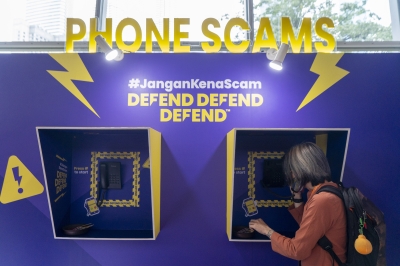KUALA LUMPUR, March 20 — A coalition of property owners and managers has pushed back against a proposal to hold landlords responsible if scam call centres operate on their premises, arguing that they have no power to investigate crimes.
The group expressed concern over the move by law enforcement to charge landlords and joint management bodies (JMBs) for tenants’ illegal activities.
“Landlords, property owners, and management bodies lack the legal authority to investigate criminal activities or means to enforce compliance within individual premises,” the statement said.
The groups included in the statement were the Associated Chinese Chamber of Commerce and Industry Malaysia (ACCCIM), Building Management Association of Malaysia (BMAM), Malaysia Shopping Malls Association, and Real Estate Housing and Developers Association (REHDA).
The statement was in response to an earlier announcement by Bukit Aman that property owners, JMBs, and security firms could face charges under Section 120(B) of the Penal Code for criminal conspiracy if they knowingly allow scam syndicates to operate on their premises.
The property groups acknowledged the need to combat scam operations but argued it was law enforcement agencies, not landlords, which have the expertise and resources to uncover criminal activities.
They also pointed out that tenancy agreements already include clauses requiring tenants to use premises only for lawful purposes, meaning landlords fulfil their obligations under existing legal frameworks.
The groups then compared the current proposal to past attempts to hold landlords responsible for tenants engaged in illegal activities such as smuggling, gambling, and drug operations, which were ultimately deemed impractical and abandoned.
While the associations expressed confidence in the authorities’ ability to investigate crime, they urged law enforcement to focus on identifying and dismantling scam syndicates instead of shifting responsibility to property owners.
The issue has gained prominence following recent police raids on luxury condominiums in Kuala Lumpur, where scam call centres operated by foreign nationals were uncovered.
Bukit Aman previously alleged that some property owners and security firms knowingly allowed such operations in exchange for lucrative rental agreements, often paid in lump sums.
Authorities argue that implementing know-your-customer (KYC) practices before leasing units could help prevent scam activities, though landlords insist they lack the tools and enforcement powers to verify tenants’ true intentions.







